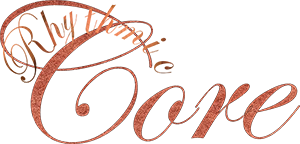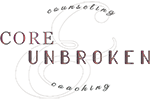Emotions and Rational Thought
It’s quite confusing, though, isn’t it? Hearing the old wise phrase ‘always follow your intuition’, whilst, also being told the modern life statement ‘always stay critical’. It seems as if with intuition we are intended to listen more to the body (focus on feelings and sensations), when critical thinking connotes with mental effort giving the sense of staying in the mind, specifically, neck up.
Many of us appear to be living in strong disconnection between mind and body. Especially with the emergence of neuroscience (study of the brain), many cultures have become very brain-centric when talking about our mind, behaviour and perceptive reality. I am sensing that the same way we dissociate body from mind, we do so between emotion and rational thought within our minds.
Luckily, our western culture is catching up with old wisdom and beginning to understand the connection between this intuitive side possibly being a pillar to our potential for complex reasoning. As many wise thinkers have said for centuries, ‘the whole is greater than the sum of its parts’ so let’s briefly look at what we can sum together.
At the beginning of the year I read two great books that are of interest here. The first is “When the body says No: the cost of hidden stress” by Dr. Gabor Mate, a Hungarian-born Canadian physician. He combines his knowledge as a medical doctor, previous substantive research, and his experience treating and talking to many patients over the years; discussing the mind-body link in various conditions and illnesses. His take is that doctors have forgotten how important emotions are in both the development of disease and regaining health. The book begins by stating that we had already understood that body and mind were inseparable but somewhere along the way we cut them apart and began treating each separately.
We clearly need to have a look at ourselves as a whole again. At least, for the sake of this post, its time to begin by exercising our emotional intelligence. Coming to think of it, maybe the first step to enhance EQ is precisely understanding the importance of emotions themselves.
Trying to follow Mate’s advice, I will look into the second book focusing on emotions. Even though, I do not believe it is equal to intuition itself, I do believe they are a key understructure to examine to be able to enhance it. Whether that be because validating and understanding the meaning of certain emotions gives us a clearer direction, or because allowing them through and feeling them in their entirety create space for a feeling of intuition.
“The feeling of what happens: Body and Emotion in the making of Consciousness” is written by Portuguese-American neuroscientist, Antonio Damasio. (Take consciousness as the part of the mind concerned with a sense of self and knowing). The book narrates his theory of consciousness which describes how the body’s natural ability to regain a steady-balanced physical state (homeostasis) is key in the biology of consciousness. Now, guess what function is a part of this biology? I hope you guessed it: Emotions! So, here we get another scientific account telling us that emotions are at the base of consciousness. Yet, so much in our minds, culture and mental health practices focuses on cognition (thoughts) only and as the primary source.
The underlying issues tend to begin, I believe, with how we feel within ourselves and in relation to the world. First off, we have basic emotional responses and needs. Then, the identity and roles that exist within our concept of self are intricately interwoven with (attached to) emotions that are kept in our memory bank. I mean, couldn’t it be that emotions are the place to be if we want to stimulate narratives and thoughts to have power? Instead of, ‘change your narrative to alter your mood and emotional state’?
Anyway, as I travel through this reflective emotional voyage myself, I close my eyes to meditate and get myself into a mindful state. I swim through my own memories and hold still with the one saying ‘emotions are Not irrational’. I remembered writing about it some years back. They are not something to be suppressed, ignored, or as we do a lot of today; mistrust. I am guessing that simply because emotions have not been considered to have linguistic properties we have begun to disregard them. Modern life is so focused on language through words that we forget emotions are also a means of communication and of creating meaning. With that, it is also true that not everything has to have meaning, purpose and be understood in a way that we find rational in the present moment. Not all emotions and feelings have to be validated all the time or what they mean to us have to be true to others. But plenty of deep seated and strong emotions require space to feel and they must be part of our regulating system.
Speaking of which, Damasio also explains how basic consciousness emerged first and language came after. Further down the line we evolved more sophisticated and complex abilities such as reasoning and abstract problem-solving. We can and do have non-linguistic images that stand for entities, inferences, relationships and events within ourselves. Meaning, we would not need to use linguistic thoughts only or primarily, so to speak, to both feel and know something. If anything, maybe it suggests that trying to think before feeling is probably not following the natural order of things and that’s when we experience stress. Recognize this within yourself? When you were pushing for your mind to hand you an answer in words on a silver platter when later your regretted not following your gut feeling?
It got me thinking that if we would acknowledge and validate, give more space to and respected the presence of emotions more, we would probably be better at critically looking at things. We would be equipped for emotion-regulation as a good base for further critical thinking. If emotions are not validated they get stuck in our bodies and our minds begin to narrow. Over time we get a closer mind-set that is more self-focused. When wanting to stay critical we want to do so with an open-mind and with a wider scope of what reality could be. In other words, starting inside out then; from deep and ancient neurobiological structures that include emotions in order to subsequently use labels such as language to make sense of the world. Possibly, with this foundation we can sit still for a moment and successfully follow our intuition?
As Dr. Gabor Mate said, mind and body are not separate, you should follow your gut feeling and emotions are important for the restoration of health. He suggests we begin to use the term mindbody to get rid of the dissociation, so I hope you adopt it as well.
My, if you have read psychology through the industrial revolution you would be surprised that even Damasio has convinced Western-trained scientists that emotions are necessary when studying the human brain in its capacity to project a thinking and feeling mind; mainly because it pertains to the sense of self. The main take home message for me is that emotion and thought or feelings and mind are not separate either. We can definitely use our thoughts to direct our path but doing so by always putting feelings second is possibly a big mistake which can come with huge consequences down the line.
Intuition. Critical thinking. Consciousness. Mindfulness. Uff! We just swallowed a lot. Despite the fact that there is a lot one could dismantle and factors we could address, I hope you begin to look at yourself as a connected whole.
For now, stay tuned, and, if you get to settle your breathing, validate your emotions and be mindful, I can only say, may your critical thinking include an emotion-inclusive practice.
Take care and much love!

